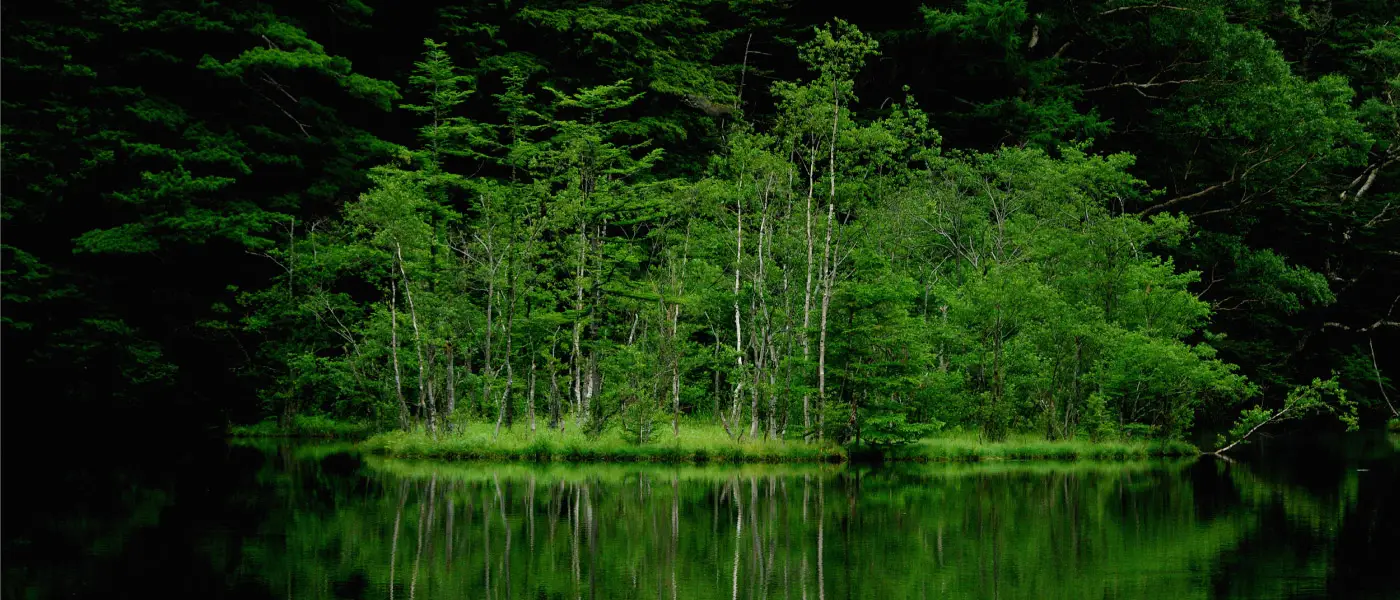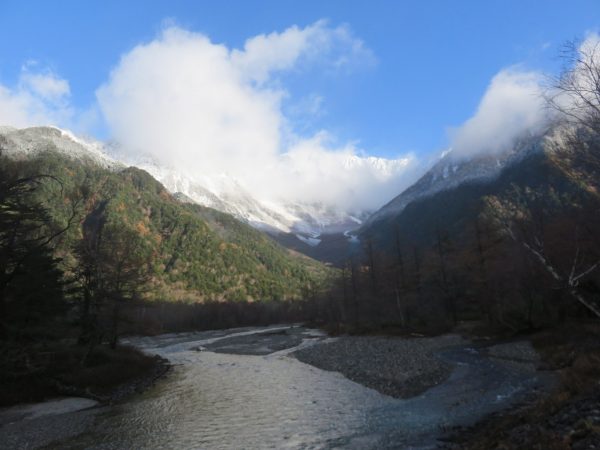
The past six months have given us a banner tourist season in Kamikochi, all topped off by a glorious autumn. With just two days left till closing, however, we'd like to share some images from this past week. All the signs of imminent winter are here: frost on Taisho Pond, snow on the mountaintops, carpets of leaves gradually accumulating on the forest floor, and of course those chilly chilly mornings.
Autumn is casting off its golden mantle. Winter is just about here.
11/09, Taisho Pond, Frosty and Picturesque
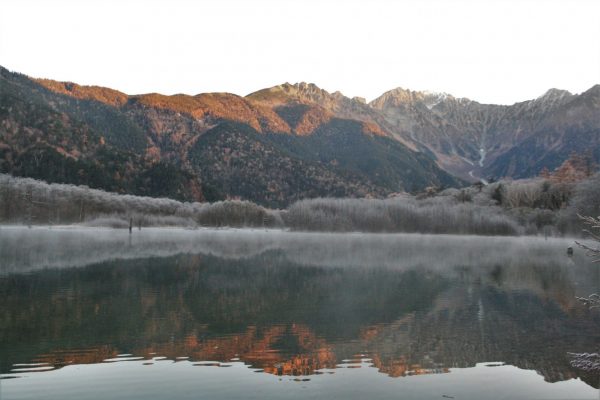
A frosty Taisho Pond with the snow-capped Hotaka peaks in teh background. (Image: Sakura)
Photographers gathered around the famous pond last Saturday to capture the tranquil, slightly haunting image of early winter frost on film. Reports from the scene tell us that it was cold enough to chill your fingers to the bone in the time it took to snap a picture.

Is that the sound of snapping shutters or chattering teeth I hear? (Image: Sakura)
11/10, What Weston Sees
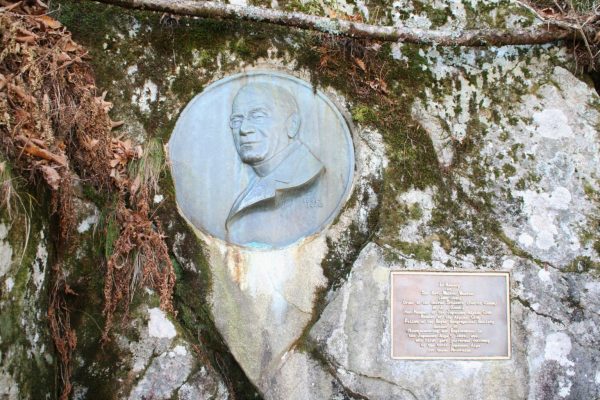
Rev. Walter Weston, commemorated by the Weston Relief (photo: Ume)
Situated near Kappa Bridge, but often overlooked by visitors to Kamikochi, the Weston Relief commemorates a key figure in the region's history. It was Weston who first introduced Kamikochi and the Northern Japan Alps to the rest of the world (read more about that here). Today, his image remains an impassive, immutable testament to the strides taken by Weston and other early alpinists to popularize hiking in Japan.
But on what sight does the good reverend fix his unbroken gaze?
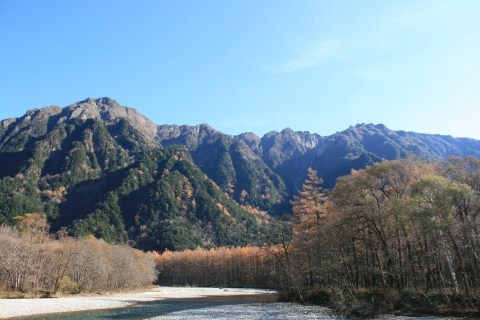
Mt. Roppyaku-san (R) and Mt. Kasumisawa-dake (L). (photo: Ume)
As it turns out, the objects of his admiration are Mt. Roppyaku-san and Mt. Kasumisawa-dake, two imposing peaks on the opposite side of the valley.
10/11, Foraging Macaques

Two generations of macaque fatten up in preparation for winter. (photo: Ume)
Long after the last fairweather hiker has packed up and returned to civilization, Kamikochi's nihonzaru (Japanese macaque) population will continue to hold a lonely vigil amid severe winter conditions. Since macaques do no hibernate, they must fatten up as much as possible while engaging in minimal physical activity before winter.
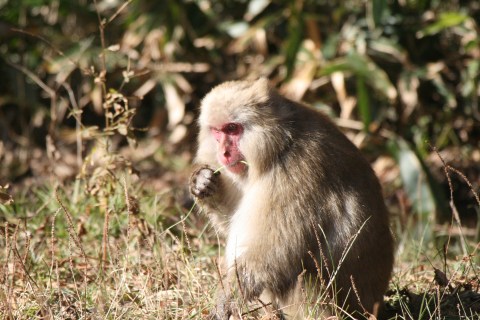
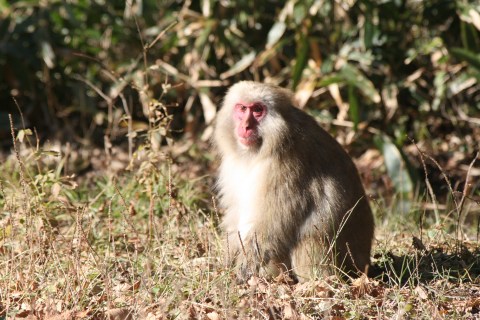
The macaques we see here are both plumper and furrier than those we see in the summer. They know the harsh conditions awaiting them and have taken appropriate precautions.
11/12, Snowy Peaks Are Here to Stay
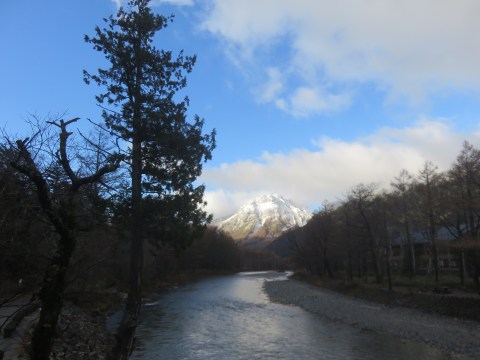
The Azusa River with Mt. Yake in the background (photo: Sakura)
The heading pretty much says it all. While early autumn snowfall might melt over the course of the day, the snow we're seeing now will be there until next summer. Here, the always imposing Mt. Yake has gained an impressive crown of snow.
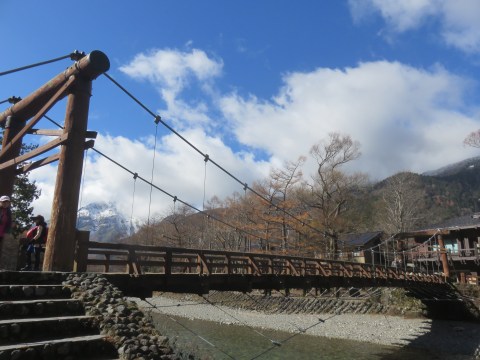
Looking downriver. (photo: Sakura)
11/13, Rustlings in the Bare Branches
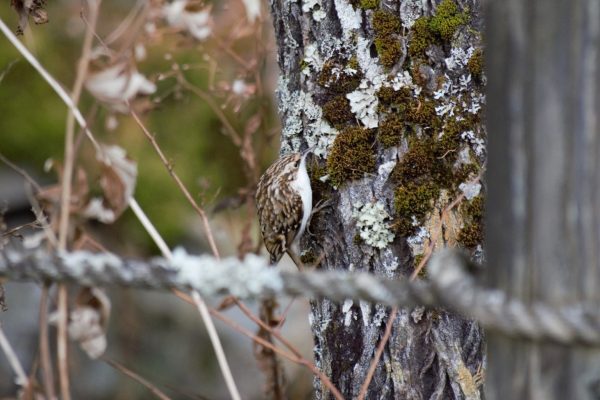
Eurasian treecreeper. (photo: Momo)
And what Kamikochi pictorial would be complete without some adorable snaps of birds? Above, we see a Eurasian treecreeper, a dainty denizen of the forests that crawls in and out of holes in trees looking for insects to eat.
And below, the Japanese pygmy woodpecker:
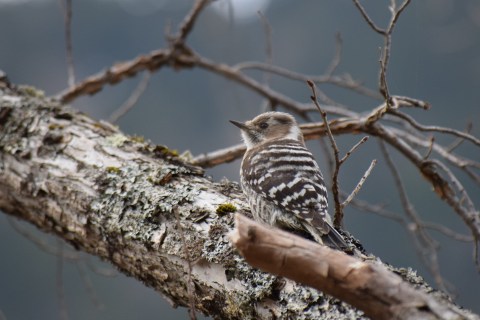
Japanese pygmy woodpecker (photo: Momo)
As with other avian species, the woodpecker not only pleases amateur birdwatchers, but also chips in part of the ambient soundscape that creates the soothing ambiance of the forest.
That's all for today's post and just about all for the 2019 season (thought we will try to post again on closing day). Thanks as always to our friends at Five Sense for contributing the info and images that account for most of our content. You guys are the best and we look forward to reading your posts in the future.
And to any planning an end of season visit, be sure to bundle up. It's beginning to feel a lot like winter.
Sources of Information:
Nature Guide: Five Sense, Kamikochi blog: https://fivesense.guide/blog/today/25901/



